For South Africa, the upcoming semi-final against England is more than just another cricket match—it’s a chance to rewrite history. At Guwahati, where they were bundled out for just 69 runs earlier in the tournament, the ghosts of that collapse still linger. Facing the same opponent at the same venue in a knockout game adds a psychological twist that goes beyond tactics and form. Every South African fan knows what’s at stake: redemption, resilience, and respect.
The Proteas have long struggled to cross the semi-final hurdle. They have made deep runs in multiple World Cups, yet heartbreak has always awaited them in the knockouts—often at the hands of the English. This match is not just about skills, but about conquering the mental mountain that has stood in their way for nearly a decade. Will 2025 finally mark the year South Africa break free of their semi-final curse?
Big Picture: The Ghosts of Guwahati
Returning to Guwahati is both symbolic and nerve-wracking for South Africa. It was here, in their opening match of the tournament, that they were dismantled for 69 in under 21 overs—a batting performance that sent shockwaves through the cricket world. England’s spin attack, led by Sophie Ecclestone and Linsey Smith, tore through their lineup like a hot knife through butter.
Now, facing the same opposition on the same soil, South Africa’s challenge isn’t just technical—it’s deeply psychological. Their practice sessions have focused on countering spin, playing straighter, and rebuilding confidence at the crease. Coach Mandla Mashimbyi’s message has been clear: “Forget the past. Play free. Play fearless.” But as every player knows, forgetting such a collapse is easier said than done.
South Africa’s Semi-Final Curse
South Africa’s semi-final woes are well-documented. They lost to England in 2017 in a heartbreaking finish and were blown away again in 2022. Each time, the Proteas entered with momentum, belief, and form—only for their dreams to end at the hands of the same nemesis. The 2025 edition feels like déjà vu, but with one crucial difference: this team is hungrier, wiser, and more battle-tested.
The pain of those previous losses has shaped this squad. Captain Laura Wolvaardt, who has matured into a calm and composed leader, has been vocal about learning from those defeats rather than running from them. She’s urged her team to “use the pain as power.” That’s easier said than done when your semi-final history is stained by English domination, but the fire in this South African lineup feels different this time around.
England’s Edge: Experience, Consistency, and Pedigree
England enter the semi-final with confidence and experience on their side. Having made it to every World Cup semi-final since 2005, they are the epitome of composure in high-pressure games. Even after a shaky start earlier in the year, the English side found rhythm under Nat Sciver-Brunt’s captaincy. Their campaign included gritty wins against India and New Zealand, proving their ability to handle adversity.
Beyond experience, England boast balance. Their spin attack, anchored by Ecclestone, remains their biggest weapon, while Heather Knight and Tammy Beaumont lend stability to the batting order. Danni Wyatt-Hodge, who crushed South Africa with a century in the 2022 semi-final, is back in form. If history repeats itself, England’s seasoned players could once again be the difference between heartbreak and triumph.
Form Guide and Key Players
England come into this clash with four wins in their last five ODIs, while South Africa have stumbled recently after a string of victories. For South Africa, Marizanne Kapp remains their heartbeat—an all-rounder who thrives in big moments. Though her form this tournament hasn’t been explosive, her ability to turn games with both bat and ball cannot be ignored. Laura Wolvaardt and Sune Luus will also be pivotal in setting a strong foundation at the top.
England’s strength lies in their depth. Ecclestone’s return from a shoulder niggle adds potency to their bowling, while Nat Sciver-Brunt’s leadership has transformed the side’s temperament. If South Africa are to break through, they must dismiss Sciver-Brunt early and resist England’s spin chokehold through the middle overs. The Proteas have the talent to do it—what they need now is temperament.
Tactics and Match Strategy
For South Africa, the approach must be simple: adapt and survive. Their collapse for 69 exposed weaknesses against spin, so a revised game plan involves batting deeper and rotating the strike more effectively. Building partnerships, especially in the middle order, will be crucial. Expect them to play with intent early on, using positive footwork against England’s tweakers to deny them rhythm.
England, meanwhile, will look to attack early and exploit South Africa’s nerves. Their bowlers will focus on extracting turn and keeping pressure through dot balls. If South Africa’s top order crumbles again, England will control the tempo easily. Expect England to rely on their tried-and-tested formula—disciplined bowling, sharp fielding, and intelligent captaincy.
Pitch and Conditions at Guwahati
The Guwahati surface is fresh but expected to behave similarly to earlier matches—slow and spin-friendly. The ball tends to grip and hold, making stroke play difficult. Pacers could extract some swing early, but as the game progresses, spinners will dominate. Teams batting first might find scoring easier under daylight, while dew could aid the chase under lights.
Weather-wise, there were earlier concerns about rain, but conditions have mostly cleared. Still, the humidity and potential evening drizzle could impact grip and fielding. If rain interrupts play, a reserve day on Thursday will ensure the match reaches a conclusion—something both teams hope won’t be needed.
Stats That Matter
England dominate the head-to-head record, leading 36-10 in ODIs against South Africa. Marizanne Kapp is just four wickets away from matching Jhulan Goswami’s record for most wickets in Women’s World Cups (43). Laura Wolvaardt is also on the brink of history—she needs 48 runs to become the first South African woman to reach 5,000 ODI runs.
Meanwhile, Heather Knight and Tammy Beaumont are both closing in on the 1,000-run mark in World Cup history, underlining England’s long-standing consistency. These personal milestones add extra spice to an already intense encounter that could shape both teams’ legacies.
Quotes Ahead of the Clash
“It’s a fresh opportunity. We’ve both evolved as teams since that first match, and it’s all about staying calm under pressure,” said South Africa captain Laura Wolvaardt in the pre-match press conference. “We’ve learned a lot from our semi-final losses, and this time, we’re here to change the story.”
England captain Nat Sciver-Brunt echoed confidence but warned against complacency: “That 69 all-out was a long time ago. South Africa have played some brilliant cricket since then, and we know they’ll come hard at us. It’s about executing our plans and staying composed.”
The Final Word
This semi-final isn’t just about a place in the final—it’s about legacy. For England, it’s the pursuit of another title. For South Africa, it’s a quest for redemption, a chance to finally shatter the chains of history. Every over will matter, every decision will be magnified, and every player will carry the weight of their nation’s expectations.
When the first ball is bowled in Guwahati, the ghosts of 69, 2017, and 2022 will hang in the air. Whether South Africa exorcises them or England reaffirms their dominance, one thing is certain—this clash will be remembered as one of the defining moments of the 2025 Women’s World Cup.
Also Read: Australia vs India T20I Series: Teams, Start & Stream Info


Disclaimer
Possible11 is a sports news and analysis platform designed purely for entertainment and educational purposes. All match previews, player insights, and team analyses are based on publicly available information and expert opinions. We do not promote or support betting, gambling, or real-money gaming in any form. Users are encouraged to enjoy our content responsibly and use it for informational purposes only.
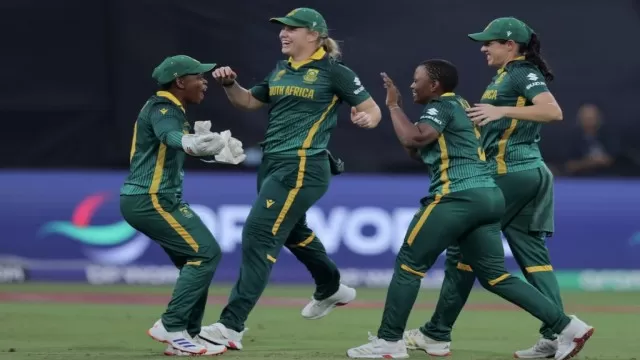
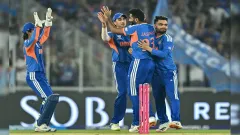
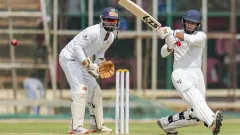
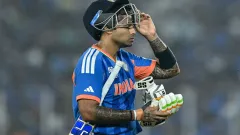

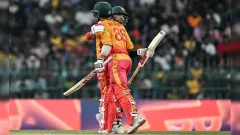
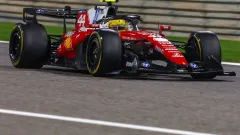

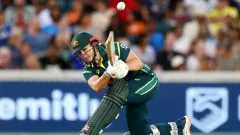


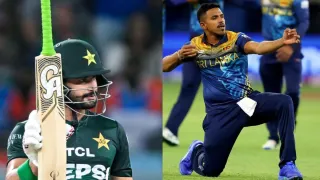


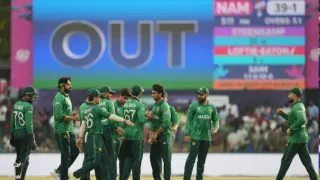


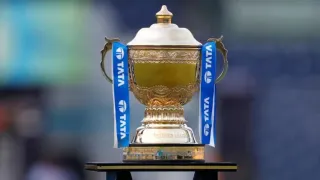
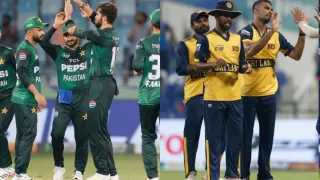
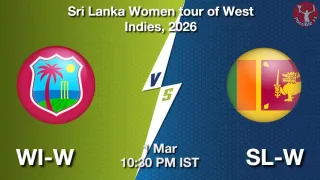
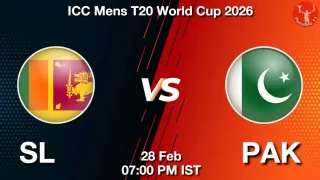
Give Your Feedback